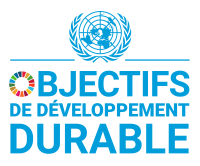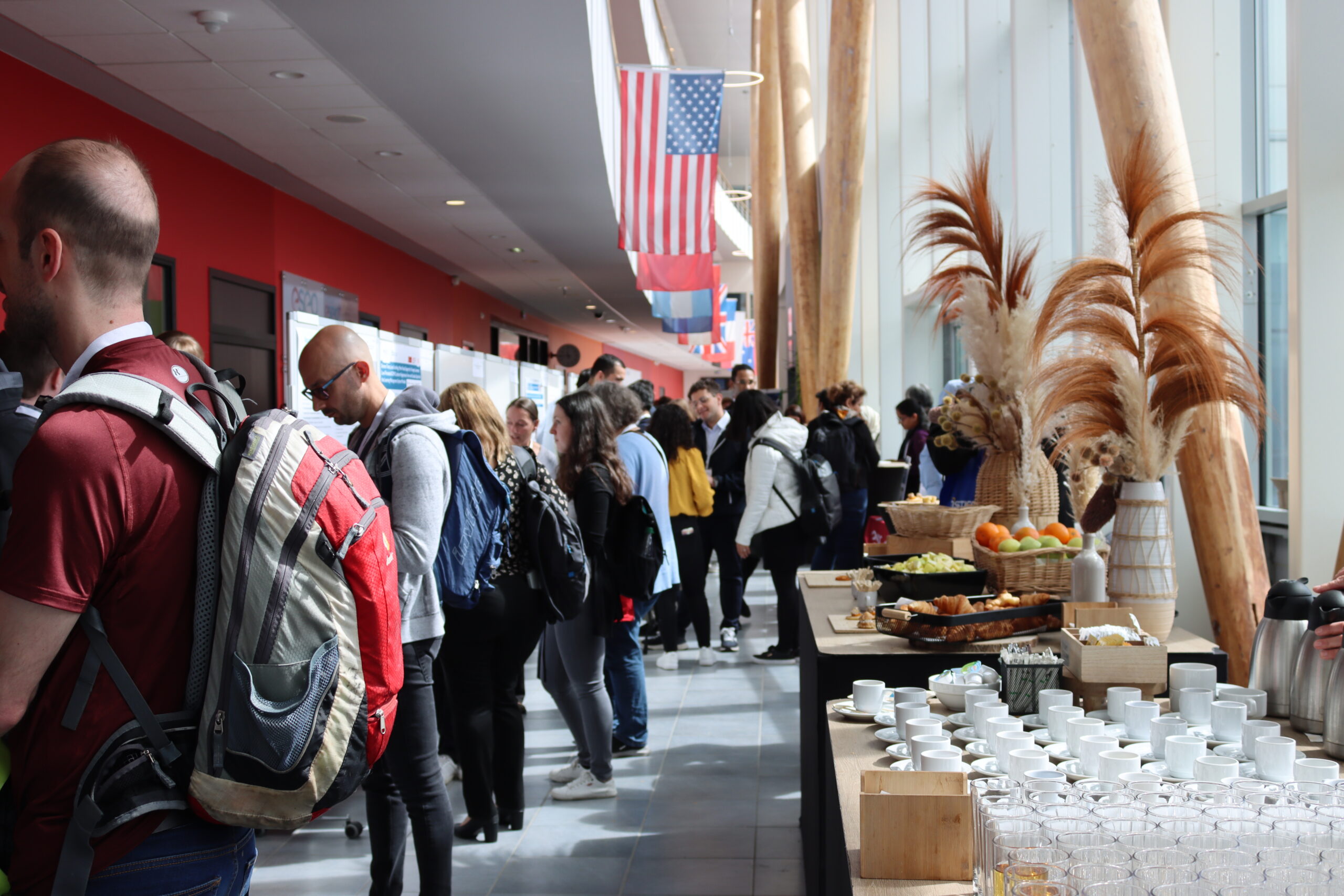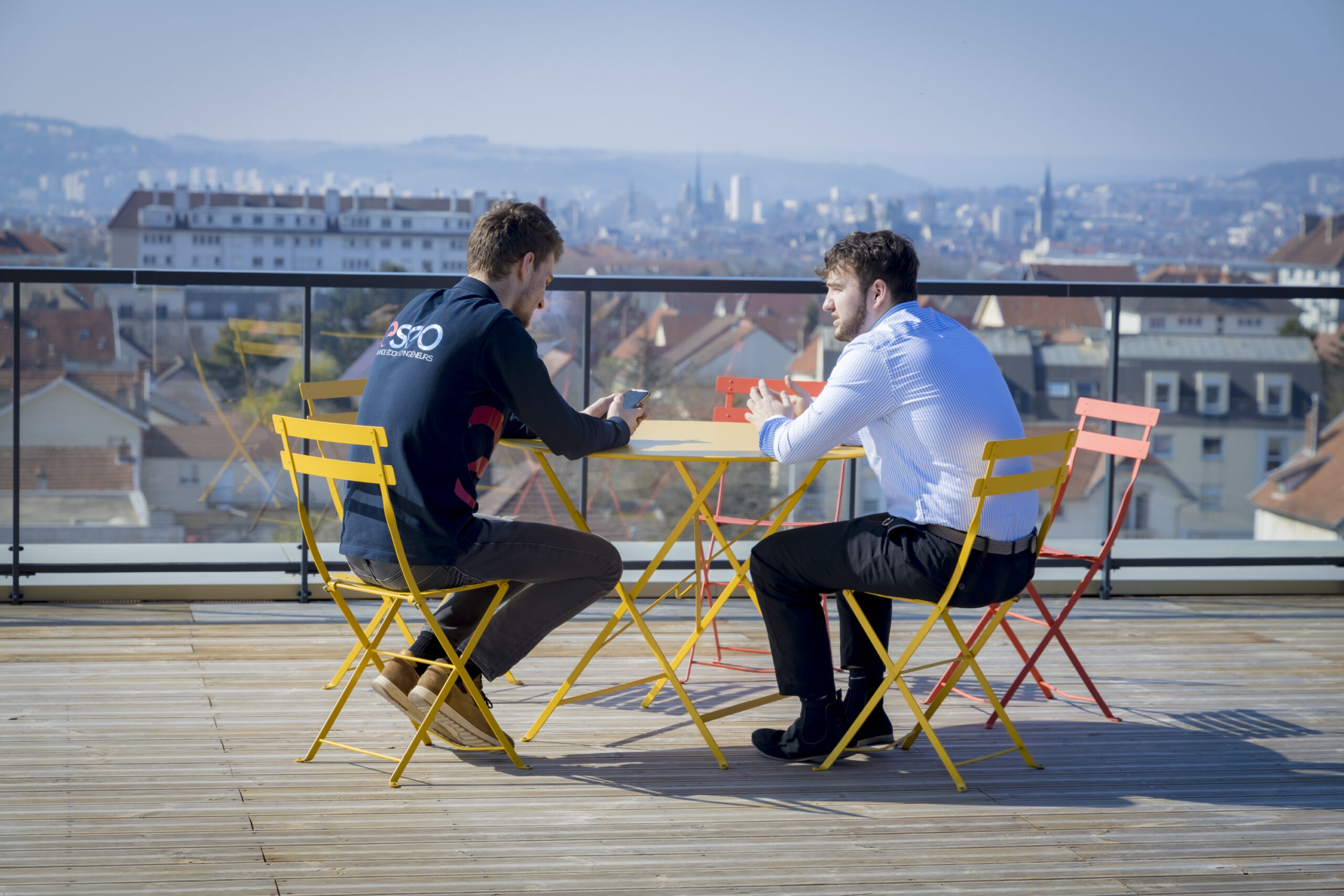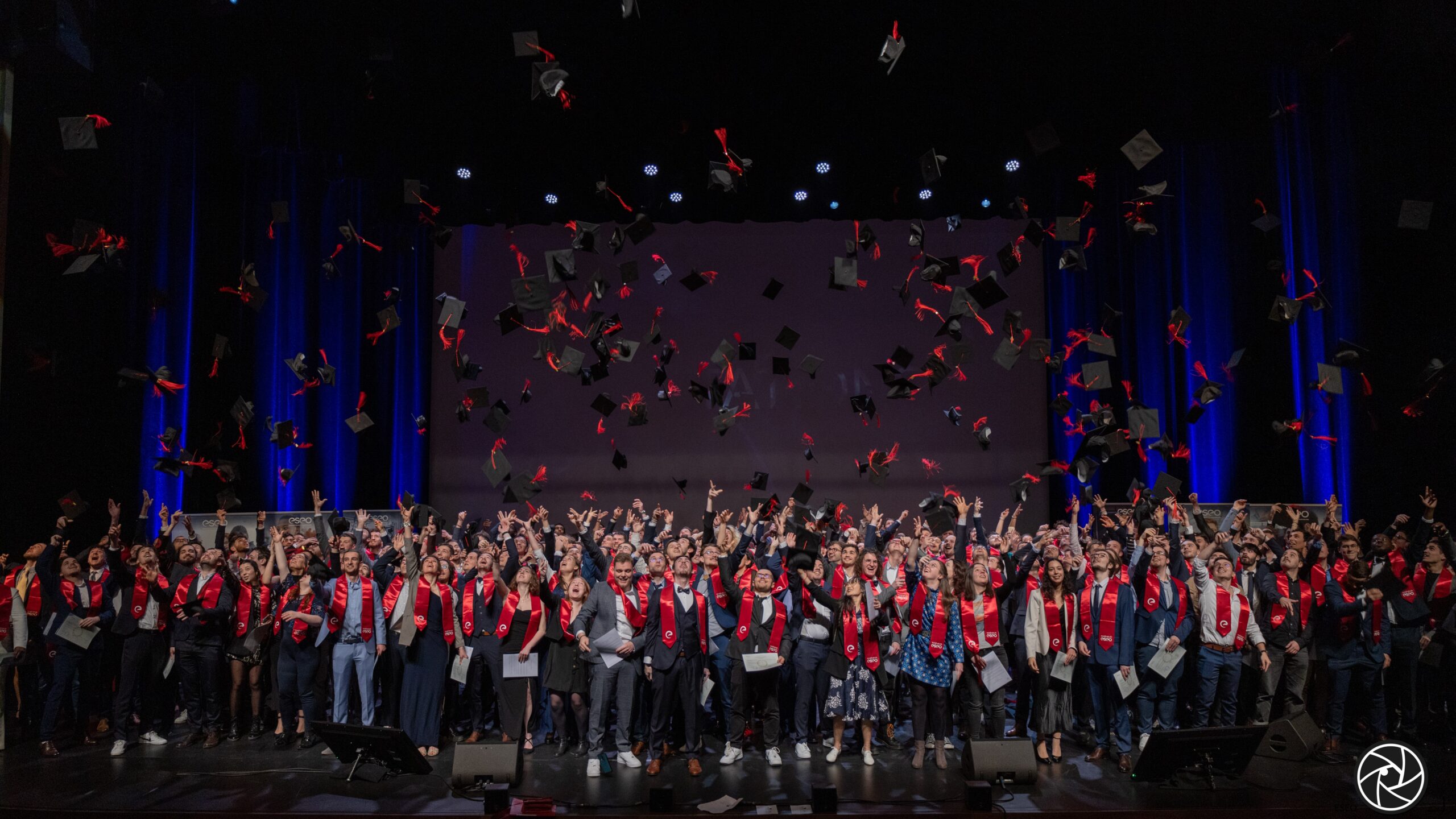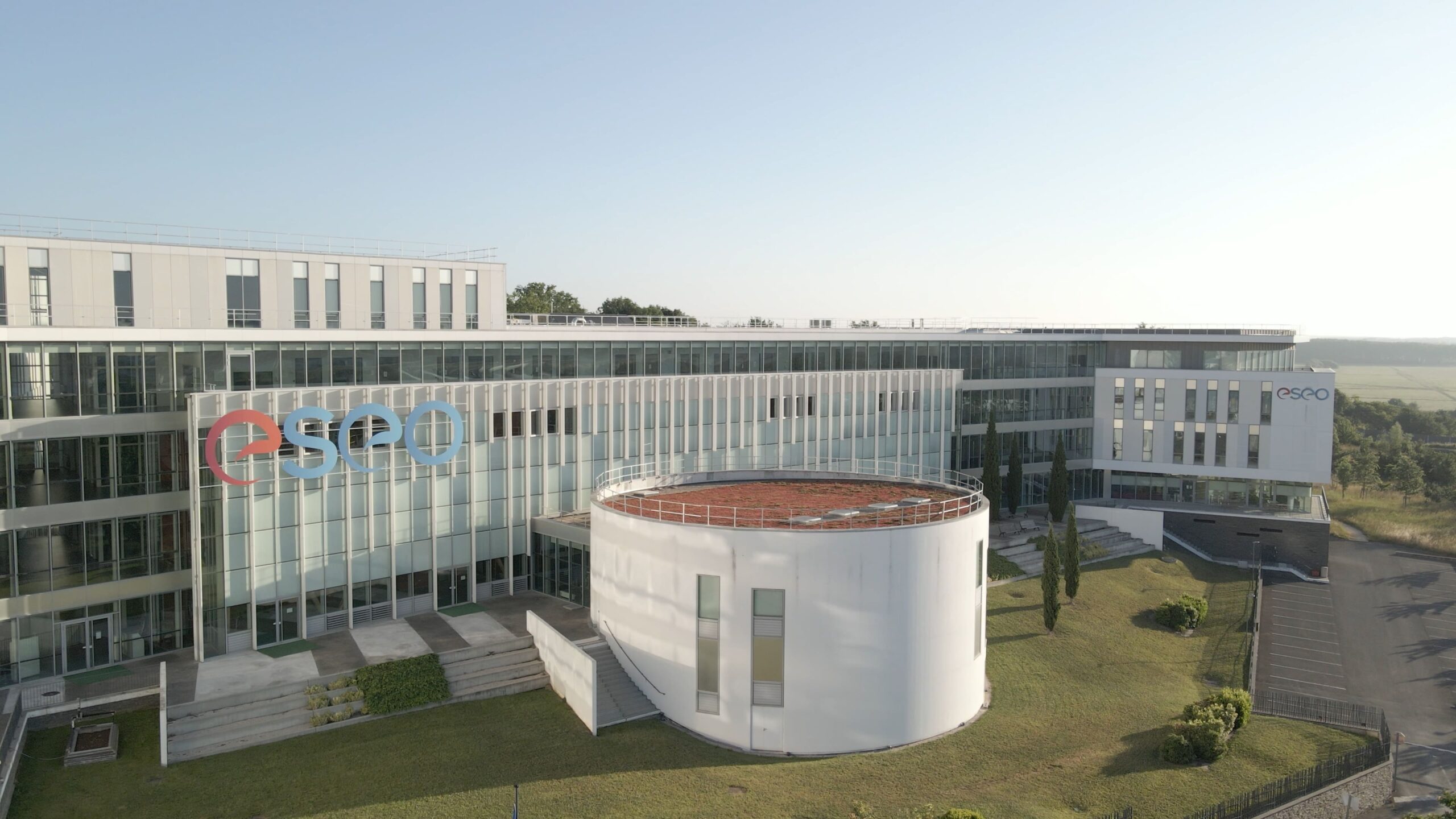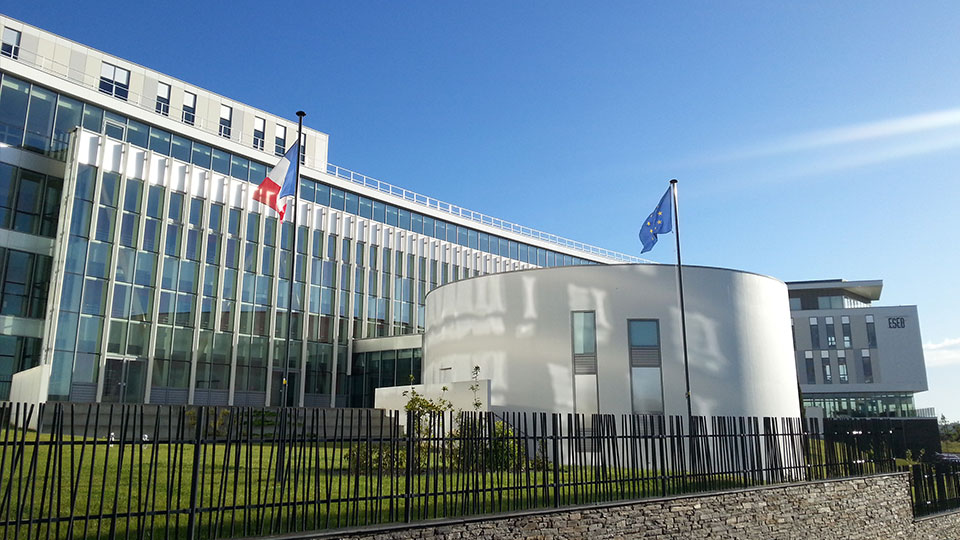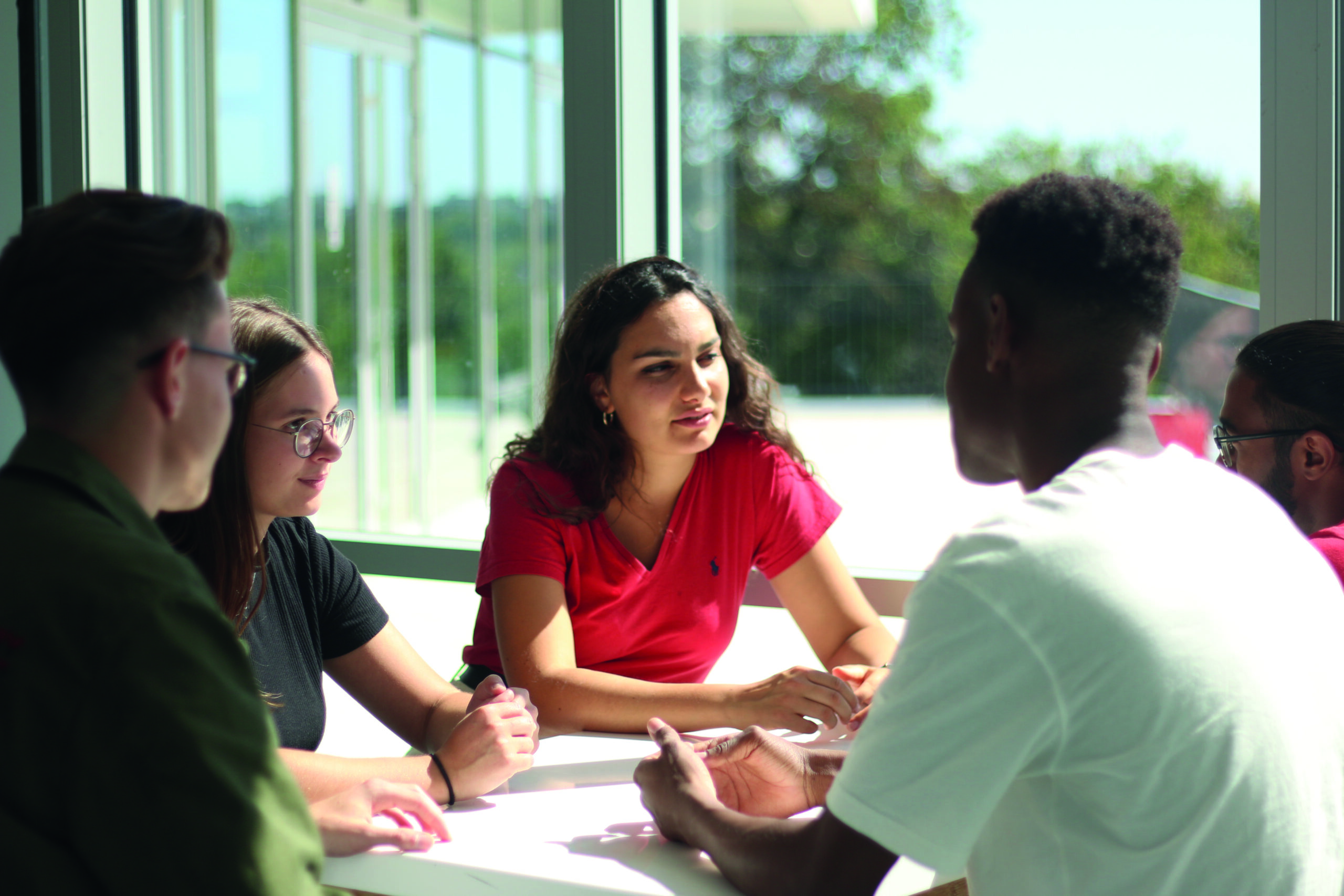Our approach is based on the methodology of the SD&RS label for higher education, which enables us to structure our actions. Our work focuses on strategy and governance, training, research, environmental management and social policy. Our actions are supported by the IES Chair, supported by Bodet, Capgemini and Itancia.
Prior to the implementation of our IES master plan, our main actions focus on a number of areas.
Training
The curriculum has undergone major changes, with the aim of training engineers with a solid scientific base and a systemic vision of these issues, which are major assets for the future.
- A minimum of 20 hours per semester of teaching dedicated to ecological and social issues in the core curriculum over the first 3 years of the engineering cycle (energy-climate issues, ecology and biodiversity, planetary limits and the anthropocene, history of science and technology, scientific mediation, introduction to carbon accounting, eco-design and life-cycle analysis).
- Dedicated courses in the Bachelor’s and engineering apprenticeship cycles.
- Analysis of ecological and social impacts in placement reports.
- Promoting student commitment
- Climate and digital frescoes, 2Tons workshop for all students responsible admission

Reducing our environmental impact
- Annual monitoring of our greenhouse gas (GHG) emissions, with a Scope 3 Carbon Audit
See the 2021-2022 carbon footprint summary
- Commitment to reducing our energy consumption and greenhouse gas emissions
- Actions to reduce the amount of waste we produce, and to improve waste sorting and recycling.
- Mobility plan drawn up in 2022, which led to the construction of a secure bicycle shelter on the Angers site, available to employees, trainees and visitors (link to access map), the provision of a fleet of bicycles for employees and the introduction of training and repair workshops for employees and trainees. This mobility plan is currently being updated.
See the mobility plan for the Angers campus
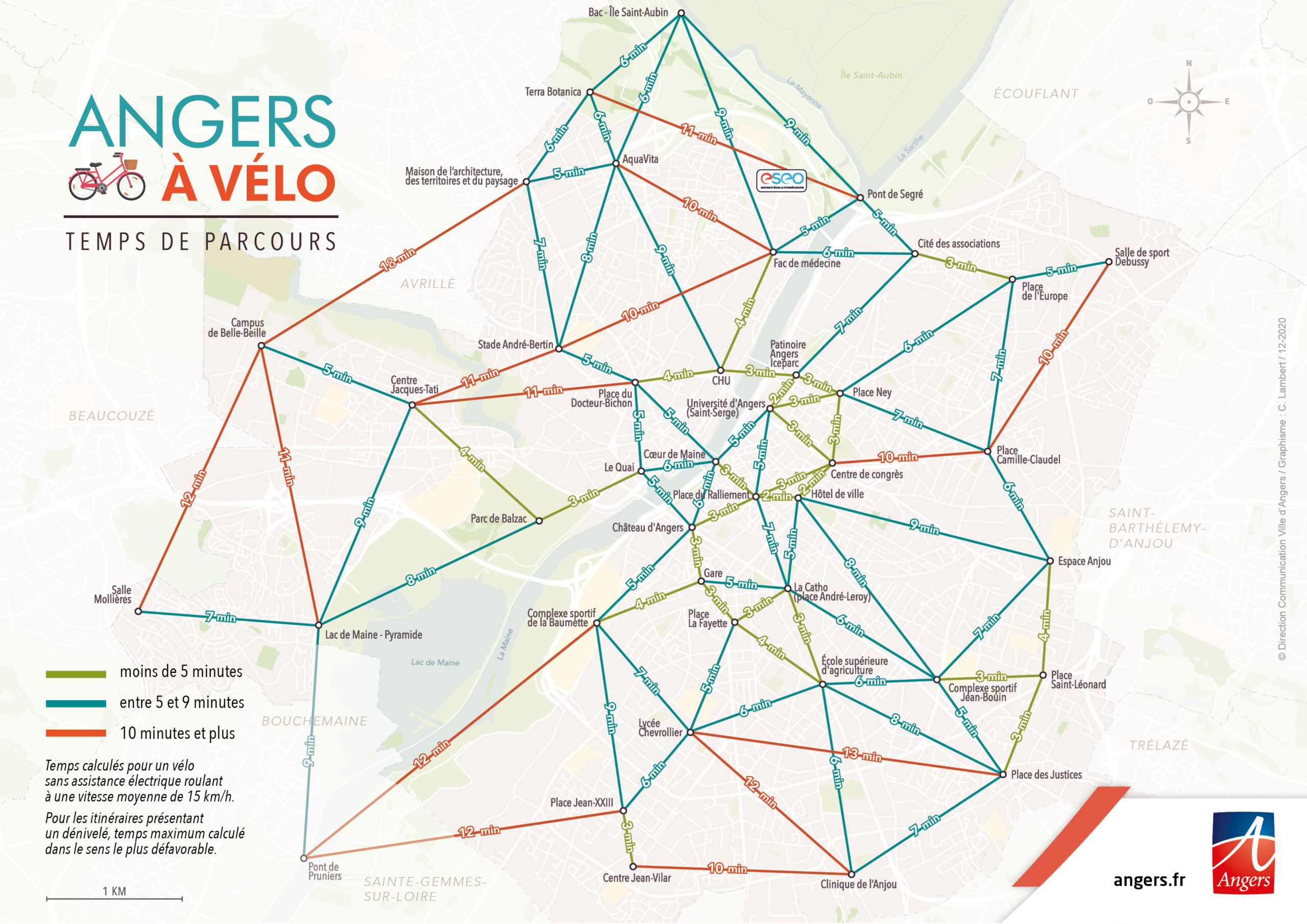
Social policy
- Development of a quality of life policy within the establishment
- Combating discrimination and gender-based and sexual violence. A watchdog unit to deal with gender-based and sexual violence and harassment, bringing together students and employees, was set up in June 2022 on the 3 campuses.
Sustainable Development Objectives
Every year, a call for IES projects is launched, aimed at all employees and learners. Up to 3 projects are funded, in line with one of the Sustainable Development Goals (SDGs) set by the UN, with an endowment of €10,000.
Find out more about the sustainable development objectives
A multi-campus IES working group, made up of employees and teachers, is working on these issues and helping to structure our approach.
